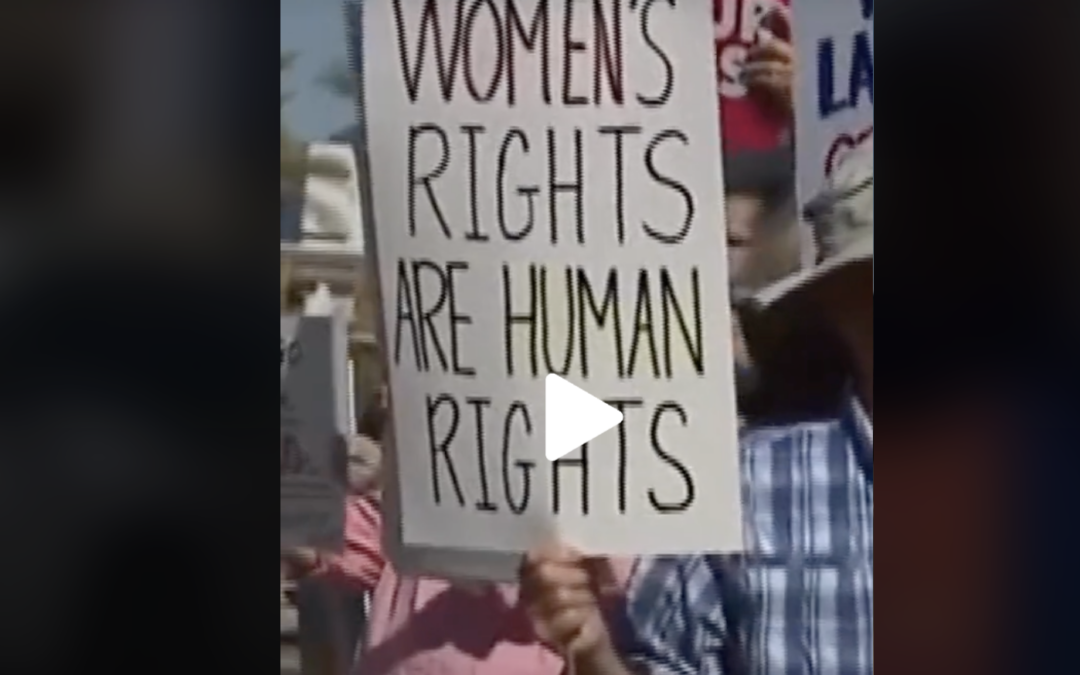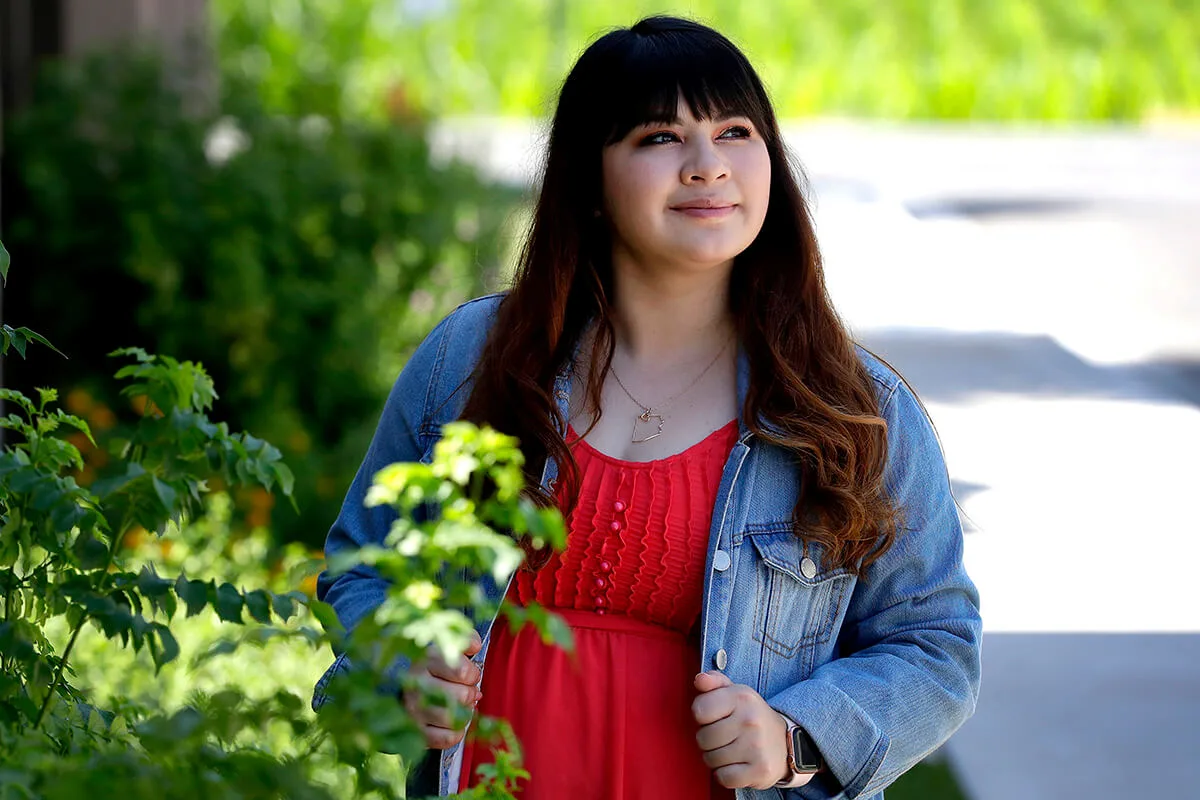
Reyna Montoya stands outside her home Thursday, June 4, 2020, in Gilbert, Ariz. Every Monday, Montoya wakes up extra early and logs onto the Supreme Court's blog, hitting refresh over and over again to find out if it's ruled on the Obama-era program that shields her from deportation. (AP Photo/Matt York)
Nearly 7,000 DACA recipients in Arizona have been working on the frontlines of the COVID-19 pandemic.
Amid the coronavirus pandemic and civil unrest over police brutality, nearly 650,000 immigrants are also feeling the anxiety of waiting for a court decision that will hugely affect their lives.
Recipients of the Deferred Action for Childhood Arrivals program are waiting for Supreme Court justices to release their decision on President Donald Trump’s attempt to end the protections. The high court heard arguments last fall and typically releases rulings on Mondays in the spring. But it’s unclear exactly when an answer will come because the court sometimes issues decisions on other days as work wraps up for the summer.
Reyna Montoya, the founder of Phoenix-based advocacy group Aliento, said she feels difficulty breathing just talking about the anxiety of waiting for the ruling. She said she sets a 6 a.m. alarm so she’s alert when the latest Supreme Court decision may be posted online about an hour later.
RELATED: Cartoon: Dreamers’ Futures Uncertain After Supreme Court Hearing on DACA
“My gut hurts,” said Montoya, 29, who is originally from Mexico but has grown up in the Phoenix area. “It’s this constant level of anxiety.”
Through her nonprofit, Montoya holds arts and healing workshops for other DACA recipients who struggle with the uncertainty. She herself sees a therapist.
The toll of the unknown — of who will take care of her financial assets, her mortgage — weighs heavy. “When you actually pause and think about all the things you need to think about, it’s very daunting,” she said.
What Could Happen?
President Barack Obama announced DACA in 2012. Recipients had to go through extensive background screening to get two-year work permits and protection from deportation.
The Trump administration in 2017 announced the end of the program, resulting in legal challenges now in the hands of the Supreme Court. Those already enrolled still have protections and can renew their two-year permits, but nobody new can join.
According to the Center for American Progress (CAP), if the Supreme Court ruling were to take away DACA recipients’ ability to renew their permits, nearly 120,000 will lose their protections as soon as November of this year.
Much of recipients’ anxiety comes from the idea that they could even be suddenly deported. Immigration authorities have said they would deport any DACA recipients who have an existing immigration court case.
At a congressional hearing Tuesday, Sen. Dick Durbin, an Illinois Democrat, asked a U.S. Immigration and Customs Enforcement official about the potential deportation of DACA recipients if the Supreme Court sides with Trump. Henry Lucero, head of ICE removal operations, said “there is no plan or current planning for that situation” but that the agency carries out lawful removal orders as directed.
Working Pandemic Frontlines
But even with this strain on their mental health, many DACA recipients are serving the country on the frontlines of the COVID-19 pandemic.
An estimated 142,100 food service workers, 29,000 healthcare workers, and 14,900 teachers are undocumented but protected under DACA, according to a CAP report. Nearly 7,000 of those workers live in Arizona.
RELATED: Thousands of DACA Recipients Are Working On the Front Lines To Keep Us Safe From COVID-19
Nearly 25,000 DACA recipients total live in Arizona, with about 90% of them living in the Phoenix area. The average age of all DACA recipients is 25.
“Should the court give the Trump administration the green light to end DACA amid the worse public health crisis in history,” Nicole Prchal Svajlenka, associate director for research on the CAP Immigration Policy, said in a press release, “it lands on the administration’s shoulders to continue to protect DACA recipients from arrest and deportation until Congress can find a permanent solution.”
More Risks When Protesting
DACA recipients also face increased risk if they choose to participate in recent protests against police brutality and the death of George Floyd in Minneapolis.
For example, Máxima Guerrero, a Phoenix DACA recipient who works for the immigrant rights group Puente, was pulled out of her car, arrested at a protest, and could be barred from renewing her application if she is convicted.
Guerrero has since been released from police custody but is still in danger of deportation.
Councilman Carlos Garcia said Guerrero shouldn’t have been arrested, since she was heading home. Garcia has repeatedly called for Maricopa County Sheriff Paul Penzone to end his cooperation with Immigration and Customs Enforcement, the federal agency that carries out deportations, but Penzone has refused to end the arrangement.
The Associated Press contributed to this report.
Politics

Trump says he’s pro-worker. His record says otherwise.
During his time on the campaign trail, Donald Trump has sought to refashion his record and image as being a pro-worker candidate—one that wants to...
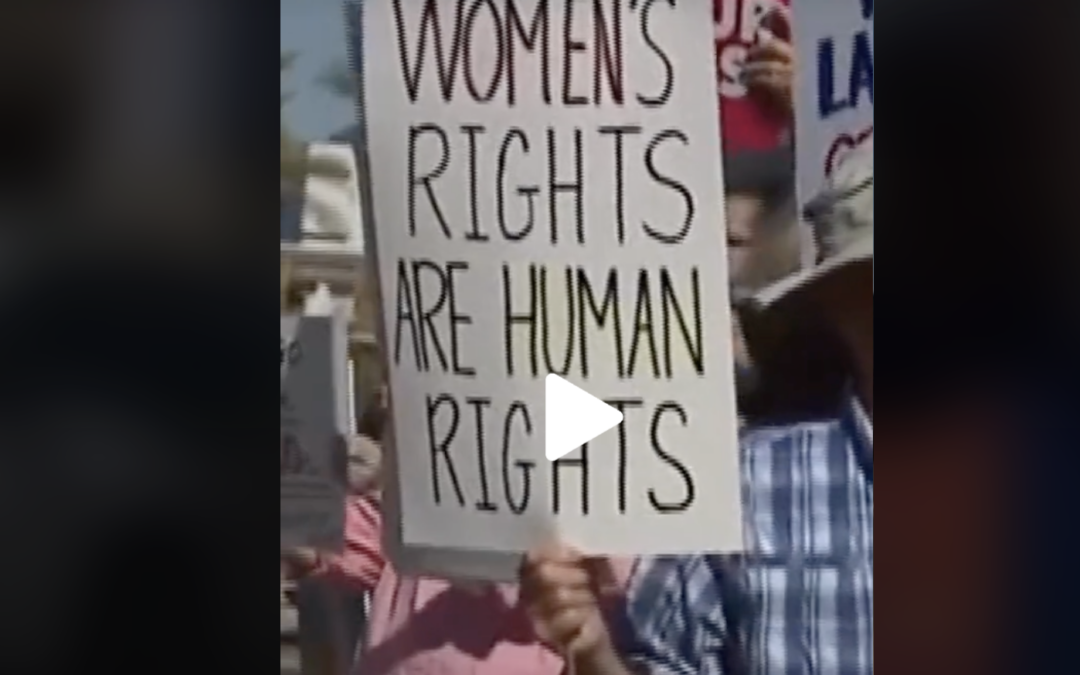
VIDEO: Hundreds show up in Scottsdale to support reproductive rights
@coppercourier Days after the Arizona Supreme Court ruled to enforce a long-dormant law that bans nearly all abortions, hundreds took part in a...
Local News
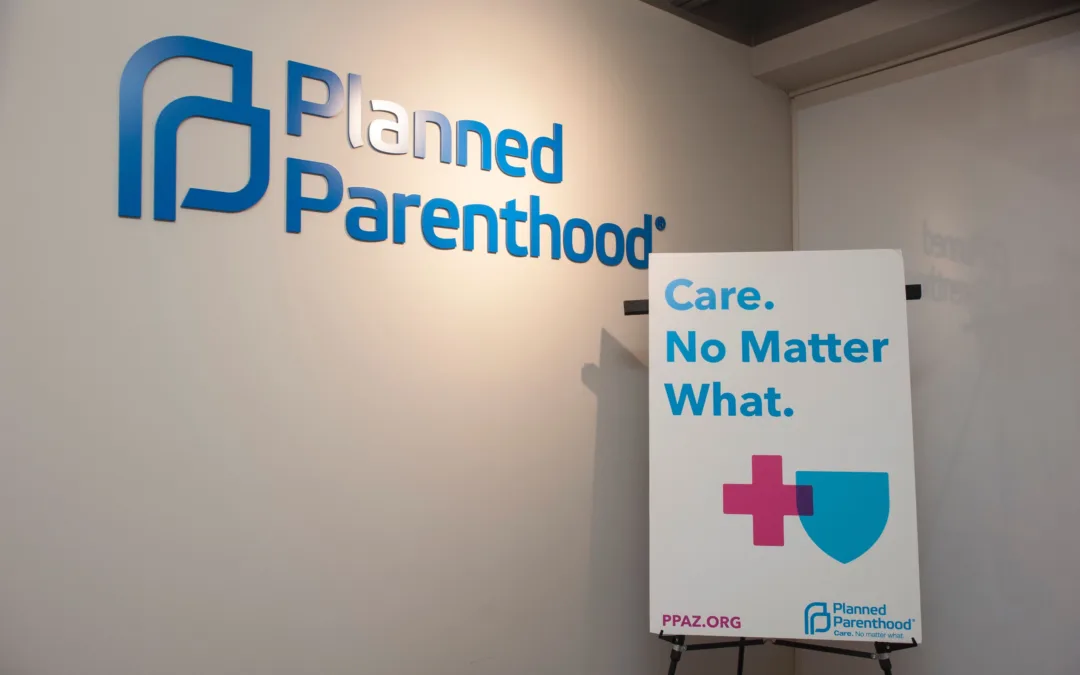
Planned Parenthood in Flagstaff resumes offering abortion care
Planned Parenthood Arizona is resuming abortion services in Flagstaff for the first time since 2022, despite the state’s newly reinstated 1864...
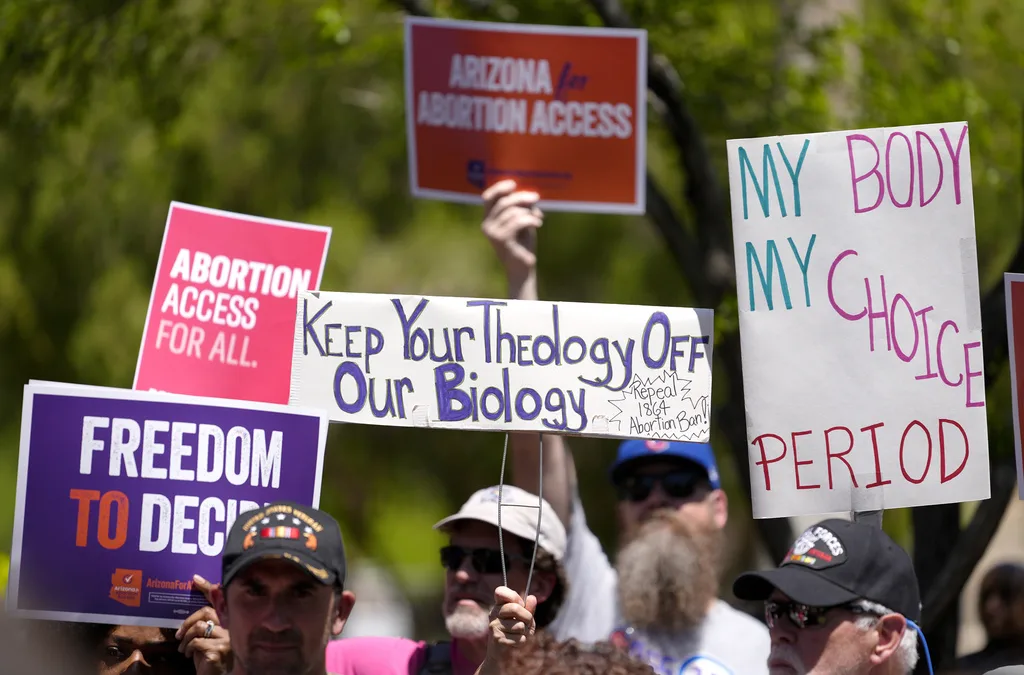
OPINION: Domestic Terrorism Prevents Women from Getting Lifesaving Abortions
Domestic Terrorism Prevents Women from Getting Lifesaving Abortions Twenty-five years ago, in the kitchen of his suburban Buffalo, New York, home,...






